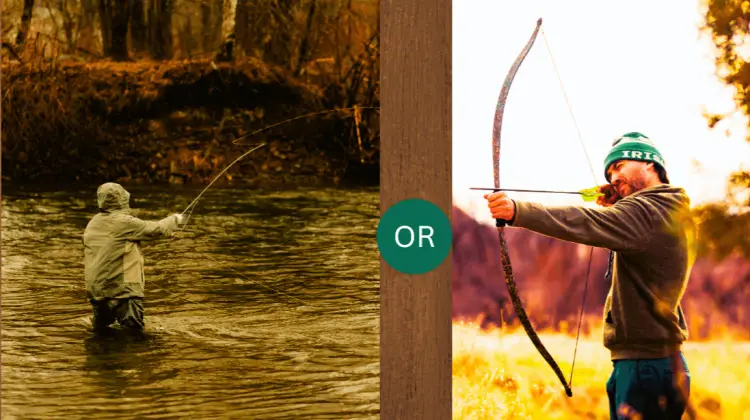
People have long debated whether fishing or hunting is better. Both activities have their appeal and challenges that attract experienced and new participants. Imagine yourself sitting by a river at sunrise, using a fishing rod to carefully place your bait in the water, trying to attract fish below.
Alternatively, picture yourself quietly walking through a forest in the fall, looking for signs of animals and trying to find majestic games hidden in nature. Choosing between fishing and hunting is not just about personal preference but about going on an adventure that sparks passion and creates strong connections with nature.
How do fishing and hunting impact human life?
Fishing and hunting have been necessary for humans for a long time. They provide food, fun, and cultural meaning. But their impact goes beyond these benefits. For people who like fishing, it can be a way to escape the busy modern world. It lets them connect with nature and find peace while waiting for a fish to bite. This simple activity has a positive impact on mental health. It can help people relax and reduce their stress.
Hunting is a sport that also helps to maintain the balance of nature. Some people may disagree with hunting for fun or trophies, but it’s essential to know that responsible hunting helps with conservation. Hunters control animal populations through regulated hunts, which keep ecosystems healthy by preventing overpopulation and maintaining different species. That’s why hunting is now a crucial part of wildlife management worldwide.
Fishing and hunting are important for local economies. People who like to fish bring in a lot of money by attracting tourists from different countries. Hunting guides also make money by taking people on trips. These industries create jobs and help local businesses like hotels. Studies show that recreational fishing alone adds billions of dollars to national economies annually.
Choosing between fishing and hunting as a hobby
Choosing between fishing and hunting can be a tough decision. Fishing offers a peaceful and relaxing experience, surrounded by nature’s beauty. The mind and body can be soothed by fishing. A big fish can bring a feeling of satisfaction and an adrenaline rush.
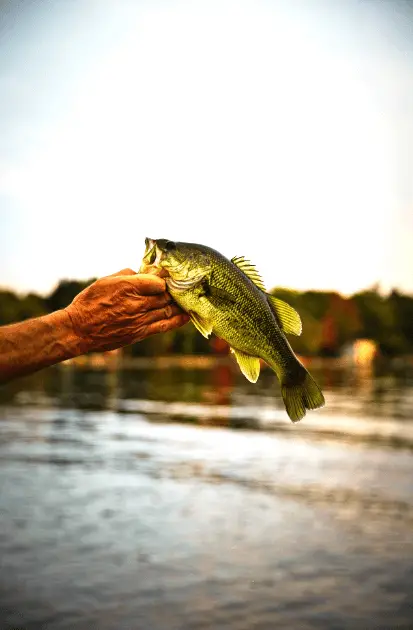
On the other hand, hunting brings adventure and taps into primal instincts. It involves honing skills, stalking prey, and experiencing the thrill of success after hours or days of patience. This adrenaline surge keeps outdoor enthusiasts coming back for more.

Fishing and hunting are both appealing hobbies. It depends on what you value most. Whether you prefer relaxation or adventure, both activities will create lasting memories.
Differences- Techniques, equipment, and environments
Fishing and hunting are different in their techniques. Fishing uses a rod, reel, and bait to catch fish, while hunting requires stealth and camouflage. Hunters use guns or bows to kill their prey, relying on patience and strategy. The equipment used also varies. Fishermen use rods, lines, hooks, and nets, while hunters use firearms designed for accuracy and power. The choice of equipment depends on the target species and location.
Fishing and hunting occur in different locations. Fishing is typically done in calm areas like lakes or peaceful rivers, where you can relax and enjoy nature. Hunting, however, takes place in various terrains like dense forests or open fields, which requires hunters to be adaptable as they move through challenging landscapes.
When we compare fishing and hunting in terms of techniques, equipment, and environments, it’s clear that both activities offer unique experiences with their special appeal. Whether you enjoy catching fish or tracking elusive game animals depends on your preference, but both activities provide exciting adventures for outdoor enthusiasts who want to connect with nature.
Fishing- Benefits, skills needed, and popular methods
Fishing is more than just a relaxing outdoor activity. It benefits the mind and body. Fishing reduces stress and improves well-being. It also helps with concentration and patience. Fishermen need to wait patiently for their catch and pay attention to signals from the water. Fishing may seem simple, but it takes practice and knowledge. It would help if you learned how to cast a line and use different baits and lures to attract other fish. Timing is also important when setting the hook.
There are many ways to fish, each with its own experience. You can fly fish in streams or go deep-sea fishing for big fish. Ice fishing is popular in winter, combining the challenge of catching fish with the cold weather. Bank fishing lets you explore new places and cast from the shore.
Fishing is a great way to relax and improve your well-being. It helps you develop essential skills like patience and focus while being in nature. You can find many types of fishing to make your time on water fun. Whether you like calm lakes or exciting ocean battles, fishing has something for everyone.
Freshwater fly fishing is a popular way to catch fish. It involves using small flies and casting them onto the water to imitate insects or prey. It takes skill and precision, as anglers must observe and make accurate casts to attract fish. Fly fishing tests your physical abilities, patience, and mental focus.
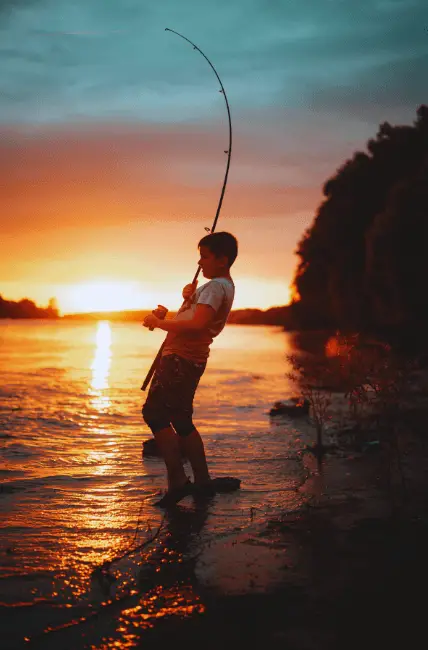
Hunting- Benefits, skills needed, and popular methods
Hunting has been around for a long time and still has benefits today. It is exciting and has physical and mental health benefits. Hunters need skills like being quiet and patient. They also learn about nature and their environment. There are different ways to hunt. One way is to wait in one spot for the game. Another way is to spot the game from far away and then get closer to shoot. This way requires good observation skills and knowledge of animal behavior.
Bowhunting is a popular form of hunting that requires precision and stealth. It is more challenging than using guns because archers must get close to their target and be accurate with each shot. Bowhunting allows for a close connection with nature, and each encounter is an exciting test that requires complete focus. The benefits of hunting include physical and mental health. Beginners and experienced hunters can both benefit from learning the skills necessary and trying out different hunting methods.
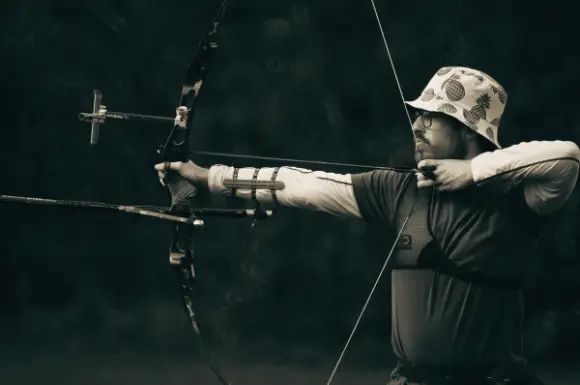
Considerations- Personal preferences, availability of resources
When deciding between fishing and hunting, personal preferences are necessary. Think about what you enjoy – sitting by the water, waiting for a fish. Or do you prefer the excitement of chasing an animal in the wild? Consider what makes you happy to make the right choice for yourself.
Having access to resources is essential. You can fish in lakes, rivers, or the ocean. Hunting might require permits, licenses, and good locations. Depending on where you live or want to go, one activity might be easier to do than the other. Consider whether you have easy access to hunting areas or bodies of water for fishing. How often and conveniently you can do your chosen activity depends on its accessibility.
Ultimately, whether you prefer fishing or hunting depends on what you like and what resources are available. Consider which experience matches your love for nature and look for options nearby. Both activities give you chances to have adventures and connect with nature, so choose the one that speaks to you!
Conclusion- Fishing or Hunting
When deciding between fishing and hunting, choose based on what you enjoy. Both activities offer different experiences outdoors. Think about what excites and fulfils you. If you value peace, relaxation, and connecting with nature, fishing might be best. Casting your line into a calm body of water can give you moments of solitude and reflection. Catching a prized fish can make you feel accomplished and satisfied.
If you like exciting adventures and being active, hunting might be a better choice. Tracking games through forests or plains adds excitement to each hunt. Going on hunting trips can also unite hunters as they share stories about campfires after a long day.
You can choose to fish or hunt for your enjoyment. Each activity has its benefits and difficulties that appeal to different people. Do what makes you happy and appreciate the beauty of nature in either pursuit.
FAQs
Q. Is fishing or hunting more suitable for beginners?
A. Fishing is more beginner-friendly as it requires less specialized equipment and permits. However, both activities can be enjoyed by beginners with proper guidance.
Q. Which activity is more environmentally friendly?
A. Both fishing and hunting can have a positive or negative impact on the environment, depending on how they are practised. Responsible practices such as catch-and-release fishing and ethical hunting methods minimize environmental harm.
Q. Are there specific seasons or times of the year for fishing and hunting?
A. Yes, both activities have specific seasons dictated by wildlife management regulations. These regulations help maintain healthy populations of fish and game, ensuring sustainable enjoyment for future generations.
Q. What type of gear is needed for fishing compared to hunting?
A. Fishing generally requires rods, reels, lines, hooks, bait, and other accessories specific to the desired catch. Hunting necessitates firearms or bows, ammunition or arrows, camouflage clothing, tree stands/blinds, and field-dressing tools.
Q. Can fishing and hunting be enjoyed in any location?
A. While fishing can be done in various bodies of water like rivers, lakes, and oceans, hunting is typically limited to designated areas such as forests or private lands permitted by landowners.
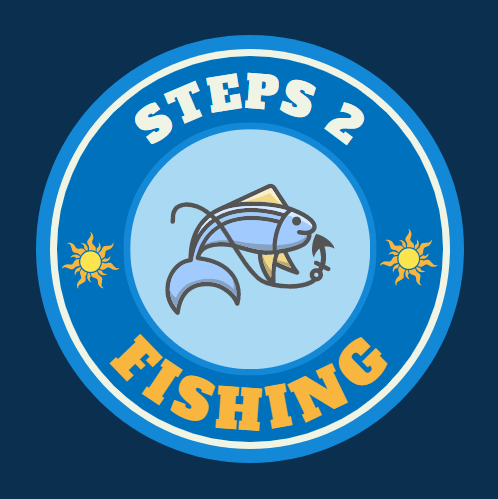

My friend is planning to try a couple of outdoor activities to enjoy what nature has to offer. I like your idea to consider fishing since it can help him understand the beauty of water bodies and the animals that live within them. I will talk to him about trying out deep-sea fishing activities someday.